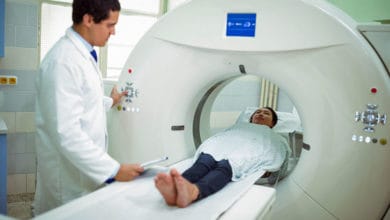If you want a career as an orthopedic surgeon, here is how competitive the medical specialty is to match into an orthopaedic surgery residency. Orthopaedic surgery is the branch of medicine that involves the care of the musculoskeletal system – the bones, joints, ligaments, tendons, and muscles that are so essential to movement and everyday life.
Statistics on the Orthopaedic Surgery Match
As of the most recent NRMP data, orthopaedic surgery had a total of 1435 applicants and 875 spots. This equates to 1.64 applicants per position. Of the 1068 U.S. MD seniors who applied, 365 did not match.
| Total Positions | Total Number of Applicants | Number of Applicants per Position |
| 875 | 1435 | 1.64 |
Osteopathic (DO) Students Matching into Orthopaedic Surgery
The total number of DO Senior Applicants was 197. Of those, 111 matched, for a 56.35% match percentage. This makes orthopaedic surgery a Not Friendly field for osteopathic students.
| Total DO Applicants | Matched DO Applicants | DO Match Percentage | |
| 197 | 111 | 56.35% |
International Medical Graduates (IMGs) Matching into Orthopaedic Surgery
Because there are 1.22 U.S. MD applicants per 1 program spot, orthopaedic surgery is considered to be Not Friendly for IMGs students.
Honors, Research and Awards for Orthopaedic Surgery Residency Candidates
The average matched U.S. applicant had 8 volunteer experiences and 3.6 work experiences. They had 6.6 research experiences and 16.5 abstracts, presentations and publications. That makes this specialty on where the number of publications needed is High.
| Research Experiences | Abstracts, Presentations and Publications | Work Experiences | Volunteer Experiences |
| 6.6 | 16.5 | 3.6 | 7 |
Average Step 2 Scores for Orthopaedic Surgery
The mean USMLE Step 2 CK score was 256. The overall competitiveness level of orthopaedic surgery is High for a U.S. senior.
How long is a residency in orthopaedic surgery? What is the lifestyle like for an orthopaedic surgery resident?
Compared to other residencies, orthopaedic surgery has a Long training length. As far as lifestyle, orthopaedic surgeons generally have a High stress lifestyle. Of course, lifestyle is very subjective and if you love what you do, it does not matter! And if you hate what you do, it can still be rough no matter what. In medicine, you should find the specialty that makes you enjoy your everyday interactions with patients, staff and colleagues.
What is the average salary for an orthopedic surgeon?
The average salary post-graduation from an orthopaedic surgery residency is $511,000, provided one does not go on to sub-specialty training which can change the salary substantially. Academic versus private practice as well as location also play a large role in physician compensation.
What are fellowships one can do from an orthopaedic surgery residency?
Following the successful completion of general orthopaedic surgery residency, some physicians may choose to continue their graduate medical education with subspecialty training. Board-certified subspecialists complete additional training and qualifying examinations beyond those required for board certification in orthopaedic surgery. Currently, the American Board of Orthopedic Surgery certifies the following fellowships:
What are the best orthopaedic surgery residencies in the country?
The best residency for orthopaedic surgery, or any specialty, is very driven by personal preference and situation. How close you are to family, loved ones, the type of training environment, the opportunities available are all things to take into consideration above and beyond name recognition of a program. However, there are some highly regarded names in the world of orthopaedic surgery including:
-
- Massachusetts General Hospital/Brigham and Women’s Hospital/Harvard Medical School
- Hospital for Special Surgery/Cornell Medical Center
- Washington University/B-JH/SLCH Consortium
- Mayo Clinic College of Medicine (Rochester)
- UPMC Medical Education
- Rush University Medical Center
- University of California (San Francisco)
- Thomas Jefferson University
- University of Washington
- Stanford University
Much of the data above is available from the AAMC Charting the Outcomes report.
FAQ: What Else Can I Learn About Orthopaedic Surgery Residency?
Q: What makes orthopaedic surgery an appealing specialty?
A: Orthopaedic surgery is appealing because it combines surgical precision with the opportunity to restore mobility and improve quality of life. Orthopaedic surgeons treat injuries and disorders of the musculoskeletal system, offering diverse procedures ranging from fracture repairs to joint replacements. The specialty is highly rewarding for those who enjoy hands-on problem-solving and working with active patients.
Q: How many orthopaedic surgery residency positions are available each year?
A: Approximately 850 orthopaedic surgery residency positions are available annually in the United States. Orthopaedic surgery is one of the most competitive specialties, with programs seeking applicants who demonstrate exceptional academic achievement, technical skills, and a commitment to the field.
Q: Do I need research experience to match into orthopaedic surgery?
A: Yes, research experience is highly recommended, particularly in areas related to orthopaedics, biomechanics, or musculoskeletal conditions. Publications and presentations at orthopaedic conferences demonstrate your dedication to advancing the specialty and can enhance your application.
Q: How important are away rotations for matching into orthopaedic surgery?
A: Away rotations are critical for orthopaedic surgery applicants. They provide an opportunity to demonstrate your technical skills, teamwork, and enthusiasm for the specialty. Strong performance during an away rotation can lead to meaningful letters of recommendation and increase your chances of matching into your desired program.
Q: What should I include in my personal statement for orthopaedic surgery?
A: Your personal statement should highlight your passion for the specialty, your interest in musculoskeletal health, and your ability to work in a team-oriented, hands-on field. Discuss specific clinical experiences, research, or challenges that inspired your interest in orthopaedic surgery and outline your long-term goals in the field.
Q: What types of conditions do orthopaedic surgeons treat?
A: Orthopaedic surgeons treat a wide range of conditions, including fractures, ligament tears, joint arthritis, spinal deformities, sports injuries, and congenital disorders. They also manage trauma cases, musculoskeletal infections, and degenerative diseases.
Q: What procedures do orthopaedic surgeons typically perform?
A: Orthopaedic surgeons perform procedures such as joint replacements, arthroscopic surgeries, fracture repairs, ligament reconstructions, spinal fusions, and tendon repairs. They use both open and minimally invasive techniques, often incorporating advanced technologies like robotic surgery or 3D imaging.
Q: Are there opportunities for orthopaedic surgeons to focus on research?
A: Yes, orthopaedic surgery is a research-driven field with opportunities in biomechanics, implant design, regenerative medicine, and surgical outcomes. Many orthopaedic surgeons contribute to advancements in prosthetics, sports medicine, and minimally invasive techniques, improving patient care and recovery.
Q: What subspecialties are available within orthopaedic surgery?
A: Orthopaedic surgery offers several subspecialties, including:
– Sports Medicine: Focusing on athletic injuries and joint preservation.
– Spine Surgery: Treating spinal deformities, injuries, and degenerative conditions.
– Hand Surgery: Managing conditions of the hand, wrist, and forearm.
– Orthopaedic Trauma: Addressing complex fractures and musculoskeletal injuries.
– Pediatric Orthopaedics: Treating musculoskeletal disorders in children.
– Adult Reconstruction: Specializing in joint replacements and arthritis management.
– Oncologic Orthopaedics: Managing bone and soft tissue tumors.
Q: What does the lifestyle of an orthopaedic surgeon typically look like?
A: Orthopaedic surgeons often have demanding schedules, particularly in trauma or hospital-based practices. However, many find the work rewarding due to its tangible outcomes and the ability to restore mobility. Subspecialists and those in private practice may have more control over their schedules, allowing for greater work-life balance.
Q: What innovations are shaping the future of orthopaedic surgery?
A: Innovations in orthopaedic surgery include advancements in robotic-assisted surgery, biologics for tissue regeneration, and custom 3D-printed implants. Minimally invasive techniques, enhanced recovery protocols, and improved prosthetics are also transforming patient care and outcomes.
Q: How does orthopaedic surgery intersect with other specialties?
A: Orthopaedic surgeons collaborate with trauma teams, physical therapists, rheumatologists, and pain specialists to provide comprehensive care. They also work closely with radiologists for imaging and neurosurgeons for complex spinal cases.
Q: Are there fellowship opportunities after completing an orthopaedic surgery residency?
A: Yes, fellowship opportunities include sports medicine, hand surgery, spine surgery, orthopaedic trauma, pediatric orthopaedics, and adult reconstruction. Fellowships provide advanced training and prepare orthopaedic surgeons for specialized practice and leadership roles.
Q: What role do orthopaedic surgeons play in sports medicine?
A: Orthopaedic surgeons specializing in sports medicine treat athletes of all levels, managing injuries such as ACL tears, rotator cuff injuries, and cartilage damage. They focus on restoring function, preventing future injuries, and helping patients return to their desired activity level.
Q: What are the career opportunities for orthopaedic surgeons?
A: Orthopaedic surgeons can work in academic medical centers, private practice, or hospital-based systems. Many also pursue careers in sports team affiliations, research, or global health. The versatility of the specialty allows surgeons to tailor their practice to their interests.
Q: How do orthopaedic surgeons approach trauma cases?
A: Orthopaedic surgeons specializing in trauma use advanced imaging, surgical techniques, and multidisciplinary collaboration to manage complex fractures and musculoskeletal injuries. They aim to restore function and mobility, often working in high-pressure environments like Level 1 trauma centers.
Q: How do I find shadowing opportunities with an orthopaedic surgeon?
A: Contact orthopaedic surgery departments at hospitals or academic medical centers. Networking through medical school advisors, mentors, or orthopaedic surgery interest groups can also help you connect with surgeons open to shadowing opportunities.
Q: What professional organizations can I join as an orthopaedic surgery student?
A: Students interested in orthopaedic surgery can join organizations such as the American Academy of Orthopaedic Surgeons (AAOS), Orthopaedic Research Society (ORS), and American Orthopaedic Society for Sports Medicine (AOSSM). These organizations provide mentorship, networking, and access to educational resources and conferences.
Q: How early should I start preparing for a career in orthopaedic surgery?
A: Begin early by excelling in anatomy, biomechanics, and surgical rotations during medical school. Join orthopaedic surgery interest groups, engage in related research projects, and seek shadowing opportunities. Hands-on experience in the operating room or sports medicine clinics can help strengthen your application for residency.
Did You Know?
- Orthopaedic surgery has its roots in treating children’s deformities:
The term “orthopaedics” was coined in 1741 by French physician Nicolas Andry, combining the Greek words for “straight” and “child.” Originally focused on correcting skeletal deformities in children, the specialty has since expanded to encompass the treatment of musculoskeletal conditions in patients of all ages.
- Orthopaedic surgeons perform over 7 million procedures annually in the U.S.:
From joint replacements to fracture repairs, orthopaedic surgeons handle a high volume of procedures to restore mobility and function. Total knee and hip replacements are among the most common surgeries, significantly improving quality of life for patients with arthritis and other joint conditions.
- Orthopaedic surgery pioneered the use of advanced materials:
Orthopaedic surgeons have been leaders in adopting innovative materials, such as titanium and ceramics, for implants and prosthetics. These advancements have improved the durability and biocompatibility of joint replacements and other surgical devices, leading to better long-term outcomes for patients.
Explore Other Specialties:
| Specialty | Average Step 2 Score (Matched) |
|---|---|
| Anesthesiology | 246 |
| Child Neurology | 246 |
| Dermatology | 256 |
| Diagnostic Radiology | 249 |
| Emergency Medicine | 247 |
| Family Medicine | 238 |
| General Surgery | 249 |
| Internal Medicine | 248 |
| Internal Medicine/Pediatrics | 250 |
| Interventional Radiology | 255 |
| Neurological Surgery | 252 |
| Neurology | 245 |
| Obstetrics and Gynecology | 248 |
| Orthopaedic Surgery | 255 |
| Otolaryngology | 256 |
| Pathology | 242 |
| Pediatrics | 245 |
| Physical Medicine and Rehabilitation | 241 |
| Plastic Surgery | 256 |
| Psychiatry | 241 |
| Radiation Oncology | 250 |
| Vascular Surgery | 247 |



